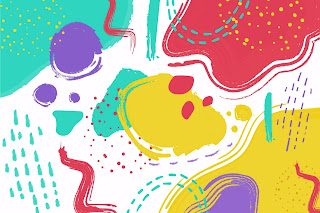Use of Colours on Learning Material
 |
| Colours influence mood |
But lately, I have been reading
about how colours can influence learning. Being in the training field has
intrigued my interest in this topic.
Out of all the information we
take in or comprehend, most of it is in form of visual material or visual
cues. So the same goes for learning too. Research states that 65% of humans are visual learners. (According to the Social Science Research Network.) While learning, whatever information our brain is absorbing, is mostly through
the sense of sight.
With the percentage of visual
leaners being pretty large, we can definitely study more about how to enhance
learning using this modality.
Everything which comes in the
vision of the learner, at the time of learning, for him, that is his visual
learning material. In this article, I shall specifically discuss how colours
play a role in learning.
Colours elicit biological
responses within individuals. As light waves move in varying lengths and each
colour has a different wavelength. Deep research on the topic is done by US researcher Dr. Robert Gerard.
 |
| Colours influence the look of Learning Material |
Vibrant colours always are used to draw attention. As per generic rules of training, a trainer would use black of blue marker to write and red or green to highlight material. So why not the other way round? Because red or green, being brighter colours, can be distracting, if text is written in that ink. Also it becomes difficult for the participants to read that text.
Red signifies warmth, but also is
a highly distracting colours because of the association it has with danger for
any human being. Blue on the other hand is a calming and relaxing colour and
has significantly good effects on learning and productivity. Green is an
excellent colour to improve concentration and gives a soothing relief to the sight
too. Scientists state that people who work in green offices have lower stress level and higher job satisfaction rates.
Trainers must use the colour
orange to uplift the mood, especially when the learners have low energy like
during after lunch sessions. Whereas, yellow is considered to be the colour used to stimulate creativity and make people alert.
Use of contrast colours and
certain bright colours can direct attention when the trainees need to pay more
attention to certain portions in the training material.
 |
| Use of Colours on Learning Material |
While using colour on training
material, one needs to also be aware that the legibility should not be traded
for the aesthetical value. If the font of the text is in an attractive colour,
however, is does not stand out with the background colour, then it does not
solve the purpose.
Let us research more on this
topic and keep exploring the fascinating subject of how the use of colour can make
learning material a hit or a disaster.
Cheers!
Comments